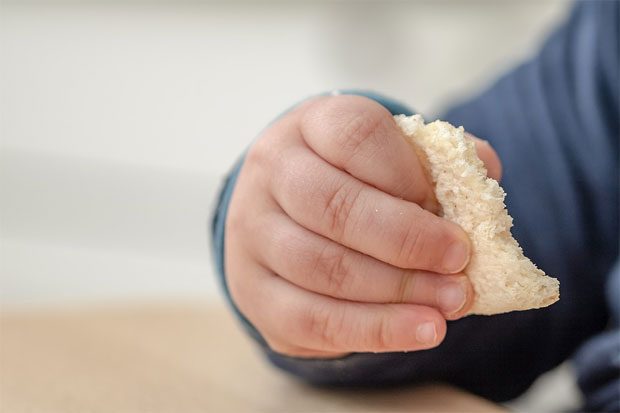When Can I Start Giving My Baby Solid Food?
When Can I Start Giving My Baby Solid Food?
You have reached a milestone when your baby starts eating solid food. Newborns and infants consume breast or formula milk during the first few months until they can start eating solid food. If you are thinking when can I start giving my baby solid food, read on, to get a clear idea about when is the ideal time to do the same. When the baby reaches 4-6 months of age, you can start giving them solid food and introduce foods one by one as they grow older.
1. Signs to start feeding the baby solid food
When your baby reaches between four to six months of age, you can start serving them solid food. Around this age babies develop coordination skills to swallow the food and not push it outside their tongue as they do for the first few months after they are born. There are signs to look for before starting to give them solid food though. You must check that their neck is steady and if they are able to hold it firmly without any support. When their neck is steady they are able to swallow food. If you see that your baby is interested in the food you eat, this is also another sign that you can soon start feeding the baby solid food.
2. Start with simple food
The solid food that you give the baby must not contain any added sugar or salt. It must be bland and mild in taste. You choose what you want to give your baby but these are things that are suitable to start with: baby cereal mixed with your baby’s normal breast or formula milk and mashed or pureed fruits and vegetables. At around 6-8 months you can introduce things like lentils and other pulses and then start to offer chunkier, more textured foods.
3. Check for food allergies
Start with pureed fruits, vegetables, and cereals. When you start adding other foods as the baby grows, check for food allergies and avoid giving a baby foods you see a reaction to. If the baby refuses to start eating solid food then he or she might not be ready. Give it a week and try again. If he or she keeps refusing, you can always ask your doctor or health visitor for advice.
4. Avoid cow’s milk or honey
Until your baby reaches the age of 12 months, do not feed him or her cow’s milk or honey. Their digestive tract is still developing and is not ready for these ingredients yet. Introduce new foods slowly when the baby gets used to eating solid foods. Feed them iron and protein-rich foods to help them stay healthy. Avoid giving processed fruit juices and juice per se as it can cause diarrhea and cavities and offer them pureed fruits instead.
5. Feeding techniques for the baby
Introduce colorful utensils, and let the baby be seated when you start feeding them solid foods. It is good to use a high chair that comes with buckles and straps so that they stay stable while eating. Do not force food into the baby’s mouth if they are not ready to eat food – wait for them to open their mouth. Feed a variety of fruit, vegetales, iron, and protein-rich foods and breast milk daily at regular intervals to keep the baby healthy and set a routine for them to get used to.
6. Offer some playtime during meals
Let the baby sit with the family in their highchair or on your lap to start having their meals and offer them their own cutlery so that they can learn to use utensils. They can entertain themselves with colorful spoons while they start eating solid foods.
If you want to know when you can start giving my baby solid food, read this article, choose the right foods in the right proportion and pick entertainment options for the baby so they enjoy eating their meals from the start.
Guest Article. Contains a sponsored link.






